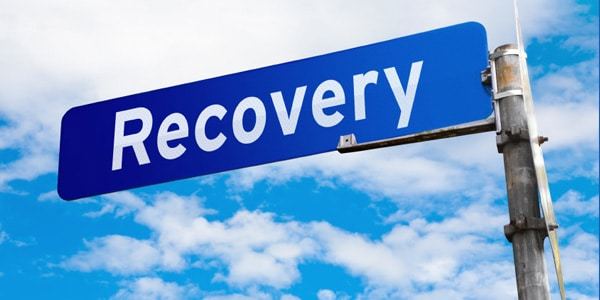What Form of Opiate Addiction Treatment Is Most Effective?
When you are considering which type of opiate addiction treatment program to attend, there are some obvious questions to ask about things like location and price. Another standard concern is whether you go inpatient or outpatient. Perhaps, the most compelling concern is how effective you can expect a program to be.
People question which variety of care is the best at treating opiate addiction. The answer isn’t simple.
What Is an Effective Opiate Addiction Treatment Program?
According to the National Institute on Drug Abuse, treatment goals include ending drug abuse and returning people to constructive functioning in their community, family, and workplace. As addiction cannot be cured, treatment has to enable people to reclaim their lives from opiate addiction.
Is One Type of Opiate Addiction Treatment Better at Treating Opiate Addiction Than the Others?
No. Simply put, the most effective form of treatment will be the one that you participate in. Your outcomes will depend upon:
- The nature and extent of your problems
- The suitability of the treatment and associated services that are used to address your problems
- The quality of the interaction between you and your treatment providers
This is why no single treatment is appropriate for all people. Each person has an individual opiate addiction situation and proper professional treatment will address that by creating an individual treatment plan. You need to consider what type of treatment will keep you engaged and prevent you from dropping out.
Can an Opiate Addiction Treatment Facility Demonstrate Efficacy?
Rehab programs each determine the criteria by which they will measure their program’s success at treating opiate addiction. When you are considering attending a treatment program, ask how the center defines success and the evidence they use to measure it. This will enable you to gauge how effective other patients have found the care at this location. If their way of measuring success feels hinky, find another option.
What Types of Staff Will Be Treating Opiate Addiction in My Opiate Addiction Treatment Program?
Like any other organization, opiate addiction treatment centers employ people who run the daily operations. Typically, these are administrative and executive positions. But, the patients primarily deal with the professional staff members providing the rehab services. A lot of people fill these jobs and it is important that these people have a great deal of education and experience. Often, these positions are occupied by people who have been addicts themselves and these people understand treating opiate addiction from both sides.
What Are Standard Staff Positions in an Opiate Addiction Treatment Facility?
When you look at the staff biographies posted on a rehab’s website or in their literature, it can determine whether you choose to attend care there. The following are the sorts of staff members you will see on these pages:
- Admission director
- President, founder/CEO
- Psychotherapist
- Detox specialist
- Case manager
- Counselor/clinician/social worker
- Program director
- Psychiatrist
- Doctor
Specialized Programs May Have Staff Not Present in More Traditional Centers
There are the standard treatment employee positions present in most classic opiate addiction treatment centers. However, when programs become more narrow in their focus, they bring on staff specific to their specialty. So, a residential rehab may employ housekeeping staff and residence managers. Whereas, a program that offers treatment for a dual diagnosis (patients with one or more mental disorders in addition to addiction), is likely to have a psychiatrist or team of them on site. If the rehab is a luxury one, there may be a number of expert positions, like a lawyer, a chef, a life coach, a physical trainer, a nutritionist, a massage therapist, and/or a yoga therapist.
Why Does the Staff Matter?
The number one way that patient undermine treating opiate addiction is by leaving the facility early. Therefore, it is vital that people remain engaged in their own care and committed to remaining in it. According to the National Institute on Drug Abuse, one of the things that determines treatment outcomes is the “quality of interaction between the person and his or her treatment providers.”
What Are the Major Components of Treating Opiate Addiction in An Opiate Addiction Treatment Facility?
As each individual requires different care, each opiate addiction treatment program offers its own set of components for treating opiate addiction. For example, luxury centers may provide yoga and massage therapy among their treatment methods. However, there are some elements of opiate rehab that are consistent. These are medication assisted treatment, behavioral therapy, and support.
Medication Assisted Treatment
Opiate detox consistently involves the use of medications approved for treating opiate withdrawal and increasing opiate abstinence. Experts agree that the discomfort experienced during withdrawal is so intense that treatment without medication is considered inhumane. Therefore, patients are given methadone, bupropion, and naloxone. They may continue taking medication as the enter formal treatment and this can continue for a lengthy period, as long-term use of these medications has been determined to be safe.
Behavioral Therapy
Literally no patient will enter into a medication assisted treatment plan without a behavioral therapy component being included as well. Medication can inhibit cravings and help with recovery, but therapy helps people to identify the attitudes and behaviors that contribute to their drug use and helps patients to modify these things in order to disrupt the opiate use patterns they have developed. Common therapy approaches used in treating opiate addiction are cognitive behavioral therapy and contingency management interventions or motivational incentives.
Support
A support system is a crucial component of any treatment plan. Often, family and friends are invited to the opiate addiction treatment facility to participate in therapy that should improve the dynamic between the patient and the people they are close to. In addition, peer support is developed during group therapy and support group meetings. By connecting with other people, an opiate addict has the opportunity to practice social skills that may have gone dormant during active addiction and the accountability they need to take responsibility for their own recovery. Get the right help, visit our official site.


